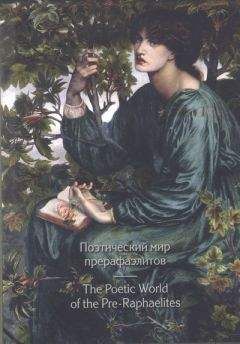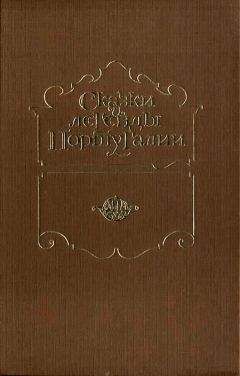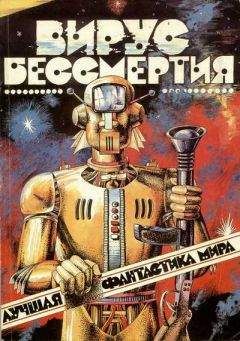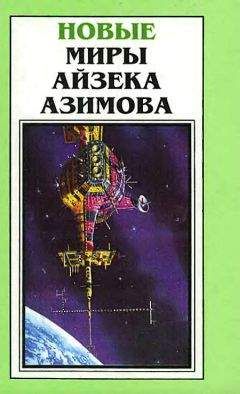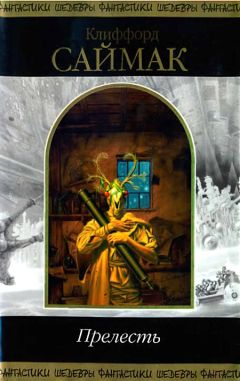ERROR AND LOSS
Upon an eve I sat me down and wept,
Because the world to me seemed nowise good;
Still autumn was it, and the meadows slept,
The misty hills dreamed, and the silent wood
Seemed listening to the sorrow of my mood:
I knew not if the earth with me did grieve,
Or if it mocked my grief that bitter eve.
Then ’twixt my tears a maiden did I see,
Who drew anigh me on the leaf-strewn grass,
Then stood and gazed upon me pitifully
With grief-worn eyes, until my woe did pass
From me to her, and tearless now I was,
And she mid tears was asking me of one
She long had sought unaided and alone.
I knew not of him, and she turned away
Into the dark wood, and my own great pain
Still held me there, till dark had slain the day,
And perished at the grey dawn’s hand again;
Then from the wood a voice cried: ‘Ah, in vain,
In vain I seek thee, O thou bitter-sweet!
In what lone land are set thy longed-for feet?’
Then I looked up, and lo, a man there came
From midst the trees, and stood regarding me
Until my tears were dried for very shame;
Then he cried out: ‘O mourner, where is she
Whom I have sought o’er every land and sea?
I love her and she loveth me, and still
We meet no more than green hill meeteth hill.’
With that he passed on sadly, and I knew
That these had met and missed in the dark night,
Blinded by blindness of the world untrue,
That hideth love and maketh wrong of right.
Then midst my pity for their lost delight,
Yet more with barren longing I grew weak,
Yet more I mourned that I had none to seek.
Я плакал вечером от тяжких мук:
Несовершенным мир казался мне.
Стояла осень, и поля вокруг
Внимали мне в туманной тишине,
И с ними лес с холмами в полусне,
И, может быть — как знать наверняка? —
Смешила их слегка моя тоска.
Я девушку увидел пред собой,
Что шла по шелестящему жнивью;
Она смотрела с жалостью такой,
Что взор ее впитал всю скорбь мою,
И вот я горьких слез уже не лью.
Она же стала спрашивать о том,
Кого искала тщетно день за днем.
Не знал я, как помочь, и снова прочь
Ушла она, и скорбь моя ко мне
Вернулась. Вот уж день сменила ночь,
Вот возвестил рассвет о новом дне;
Вдруг слышу голос: «Где, в какой стране
Любовь моя и боль моей души?
О, где ты? Отозваться поспеши!»
То — юноша. Отчаяньем горят
Его глаза, взирая на меня.
Я плакать перестал, стыдом объят,
А он сказал: «Скорбящий! Знай, что я
Люблю, любим, но милая моя
Исчезла; я ищу и здесь, и там,
Но не сойтись нам, словно двум холмам».
Он повернулся и ушел во тьму,
А я остался. Я не мог не знать:
Во тьме слепой вновь суждено ему
Найти, и не признать, и потерять.
Какая мука! Им — блуждать, страдать,
Бесплодно ждать; а на моем пути —
Нет никого, и не за кем идти.
THE EARTHLY PARADISE
(A FRAGMENT)
Forget six counties overhung with smoke,
Forget the snorting steam and piston stroke,
Forget the spreading of the hideous town;
Think rather of the pack-horse on the down,
And dream of London, small and white and clean,
The clear Thames bordered by its gardens green;
Think, that below bridge the green lapping waves
Smite some few keels that bear Levantine staves,
Cut from the yew wood on the burnt-up hill,
And pointed jars that Greek hands toiled to fill,
And treasured scanty spice from some far sea,
Florence gold cloth, and Ypres napery,
And cloth of Bruges, and hogsheads of Guienne;
While nigh the thronged wharf Geoffrey Chaucer’s pen
Moves over bills of lading — mid such times
Shall dwell the hollow puppets of my rhymes.
Забудь шесть округов, забудь их смрад и чад,
Забудь, как поршни в лад размеренно стучат,
Как расползается наш город-монстр во тьму,
А вспомни: здесь брела лошадка по холму,
Наш Лондон был и бел, и мал, и мил, и нов,
А Темзы берега все в зелени садов.
По зелени волны ввозили корабли
Груз тисовых стволов с холмов Святой Земли;
Минуя мост, вплывал, Востоком осиян,
Привезший пряности корабль из дальних стран;
Шли амфоры, что грек мог приподнять едва,
Флоренции шитье, голландцев кружева,
Из Брюгге ткани шли, из Франции вино
И в пестром хаосе бурлила пристань, но
Сам Чосер вел счета. В те дальние года
Ведет вас строк моих неловких череда <…>
I know a little garden-close,
Set thick with lily and red rose,
Where I would wander if I might
From dewy morn to dewy night,
And have one with me wandering.
And though within it no birds sing,
And though no pillared house is there,
And though the apple-boughs are bare
Of fruit and blossom, would to God
Her feet upon the green grass trod,
And I beheld them as before.
There comes a murmur from the shore,
And in the close two fair streams are,
Drawn from the purple hills afar,
Drawn down unto the restless sea:
Dark hills whose heath-bloom feeds no bee,
Dark shore no ship has ever seen,
Tormented by the billows green
Whose murmur comes unceasingly
Unto the place for which I cry.
For which I cry both day and night,
For which I let slip all delight,
Whereby I grow both deaf and blind,
Careless to win, unskilled to find,
And quick to lose what all men seek.
Yet tottering as I am and weak,
Still have I left a little breath
To seek within the jaws of death
An entrance to that happy place,
To seek the unforgotten face,
Once seen, once kissed, once reft from me
Anigh the murmuring of the sea.
Я знаю сад, укромный сад,
Где лилии и розы спят.
Я там бродил бы день-деньской.
В росе рассветной и ночной,
Мы там бродили бы вдвоем.
Пусть певчих птиц не слышно в нем,
И нет чудесного дворца,
Пусть облетели до конца
Деревья, лишь бы слышать мог
Я шелест этих легких ног,
Следя за ними, как тогда.
Морская плещет там вода,
И два ручья с лиловых гор
Бегут, ведя бурливый спор,
Спешат через зеленый дол;
Не слышно там жужжанья пчел,
Не видно с берега челна,
Лишь целый день шумит волна,
И отзвуками полон сад.
Увы, мне нет пути назад.
Напрасно плачу день и ночь,
От мира удалившись прочь,
К земным соблазнам глух и слеп,
Уныл, беспомощен, нелеп,
Страдаю я, судьбу кляня.
Но хватит духу у меня
У смерти в пасти отыскать
Вход в тот блаженный край опять,
Где мне сиял любимой лик,
Где я ее лишился вмиг,
Где волны, омывая сад,
Неумолкаемо шумят.
For many, many days together
The wind blew steady from the East;
For many days hot grew the weather,
About the time of our Lady’s Feast.
For many days we rode together,
Yet met we neither friend nor foe;
Hotter and clearer grew the weather,
Steadily did the East wind blow.
We saw the trees in the hot, bright weather,
Clear-cut, with shadows very black,
As freely we rode on together
With helms unlaced and bridles slack.
And often, as we rode together,
We, looking down the green-bank’d stream,
Saw flowers in the sunny weather,
And saw the bubble-making bream.
And in the night lay down together,
And hung above our heads the rood,
Or watch’d night-long in the dewy weather,
The while the moon did watch the wood.
Our spears stood bright and thick together,
Straight out the banners stream’d behind,
As we gallop’d on in the sunny weather,
With faces turn’d towards the wind.
Down sank our threescore spears together,
As thick we saw the pagans ride;
His eager face in the clear fresh weather,
Shone out that last time by my side.
Up the sweep of the bridge we dash’d together,
It rock’d to the crash of the meeting spears,
Down rain’d the buds of the dear spring weather,
The elm-tree flowers fell like tears.
There, as we roll’d and writhed together,
I threw my arms above my head,
For close by my side, in the lovely weather
I saw him reel and fall back dead.
I and the slayer met together,
He waited the death-stroke there in his place,
With thoughts of death, in the lovely weather,
Gapingly mazed at my madden’d face.
Madly, I fought as we fought together;
In vain: the little Christian band
The pagans drown’d, as in stormy weather
The river drowns low-lying land.
They bound my blood-stain’d hands together,
They bound his corpse to nod by my side;
Then on we rode, in the bright March weather,
With clash of cymbals did we ride.
We ride no more, no more together;
My prison-bars are thick and strong,
I take no heed of any weather,
The sweet Saints grant I live not long.
Мы долго ехали с тобою,
Дышал восток на нас теплом,
И становилось той порою
Все жарче, жарче день за днем.
Не попадалось нам с тобою
Ни супостатов, ни друзей,
Весенней радостной порою
Восточный ветер дул сильней.
Мы рощи видели порою,
Их тень была черным-черна.
Мы вольно ехали с тобою,
Без шлемов, бросив стремена.
Когда мы ехали с тобою,
Нам взоры тешила река,
Цветы весеннею порою,
Вода лесного ручейка.
Ночлег устроив, мы с тобою
Распятье клали в головах,
Несли дозор ночной порою,
Когда луна вселяла страх.
Сверкали копья; мы с тобою,
Под ярким знаменем, вперед
Весенней ясною порою
Стремились прямо на восход.
Взялись за копья мы с тобою,
Язычники сомкнули строй;
Ты той весеннею порою
В последний раз стоял со мной.
На мост помчались мы с тобою,
Бой становился все страшней,
Листва весеннею порою,
Как слезы, сыпалась с ветвей.
Ввязались в гущу мы с тобою.
Мои глаза застлала мгла —
Ведь ты, той дивною порою,
Качнувшись, мертвым пал с седла.
Убийца ждал, готовый к бою,
Я нанести удар был рад.
Он испугался той порою,
Увидев мой безумный взгляд.
Мы столько сил отдали бою,
Но тщетно: горстку христиан
Смело, как бурною порою
Сметает сушу океан.
Меня, изранив, взяли с бою,
И привязали рядом труп,
И в путь весеннею порою
Пустились с ревом хриплых труб.
Не скачем больше мы с тобою,
Над головой — тюремный свод.
Мне все равно, какой порою
Господь к себе меня возьмет.
